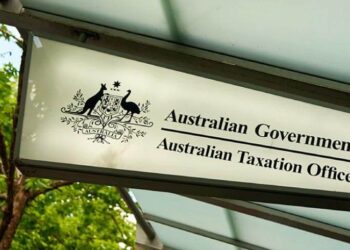Aaron Dunn, CEO of Smarter SMSF, said in the latest SMSF Adviser podcast that the last-minute deferral from Treasury to enact the changes is being seen as a win by the industry and a further opportunity for the sector to go back to the drawing board on a number of issues it had raised in relation to consequences of the changes.
“[The deferral] is deemed to be a win because of the issues that the industry has clearly raised. There is now going to be an opportunity to have some robust discussion with government around these things so that they’re not getting caught up in the same context with much smaller organisations, as they are with PwC, which we know is very much front and centre of what has really unfolded here,” Dunn said.
“Looking at the Assistant Treasurer’s guidance, obviously, this announcement came right at the 11th hour in respect to this relief, and his communication is still all about lifting professional standards, but the government is now going to give the industry a period of time to work this out. From that point of view, I think it can be claimed as an initial partial win.”
Dunn said that if the deferral had not been announced, it would have caused significant concerns for the industry in regard to the volume of work needed to be completed for compliance.
“Obviously, the Tax Practitioners Board was providing some guidance on how, in a transition sense, practitioners could look to deal with it. This deferral doesn’t mean that the changes are off the table, but we are probably going to go through an election cycle in between as well,” he said.
Assistant Treasurer Stephen Jones mentioned in his announcement in regard to the deferral that all eight obligations were included in the exposure draft consultation; however, this was questioned by an open letter issued by the joint accounting bodies, including the SMSF Association.
In the letter, the joint bodies said that “it is incorrect for the Assistant Treasurer and Minister for Financial Services, the Hon Stephen Jones MP, to say ‘tax practitioners and their professional associations were consulted throughout the development of the code as it was proposed, including in the weeks before the government’s announcement to introduce the new obligations.’”
The letter continued that no further consultation or engagement after January was undertaken on the determination before it was registered on 2 July 2024, six months later.
“Only after the determination was registered did the joint bodies became aware of a new notification obligation in paragraph 15(2)(c) (not previously in the exposure draft or subject to any consultation), which requires registered tax practitioners to report clients to the commissioner if they do not correct false or misleading statements within a reasonable time,” it said.
The joint bodies’ overarching substantive concerns relate to two obligations in the determination:
- Paragraph 15(2)(c), which, for the first time in tax law, requires practitioners to “dob-in” their clients to the ATO.
- Section 45, which requires practitioners to notify current and prospective clients of “any” matter that may significantly influence (as yet undefined and without guidance) a client’s decision to engage or continue to engage the practitioner to provide tax agent services, including an obligation to advise clients of investigations by the Tax Practitioners Board (TPB) before any decision is made, treating the practitioner as guilty until proven innocent.
The accounting industry bodies were also concerned with the unilateral power that Minister Jones has in issuing any changes in the determinations.
“There is fairly strong unity within not only the accounting bodies, but a number of other bodies that were a party to letters to the minister that highlighted their concerns,” Dunn said.
“As a government, you naturally say, ‘we don’t want vested interest coming to us. We want a voice of unity to discuss these issues,’ and I think that voice of unity would have played a role in the Assistant Treasurer listening. However, to what extent and how much further he’s prepared to listen, we’ll just need to wait and see.”


